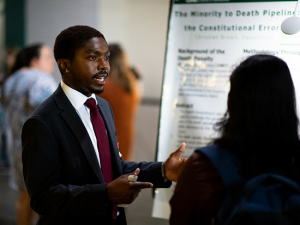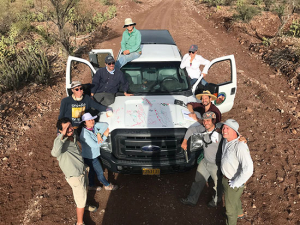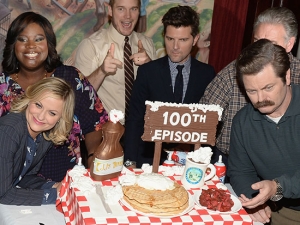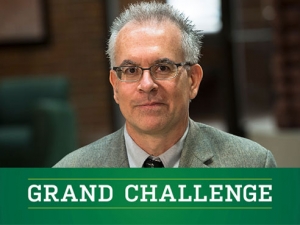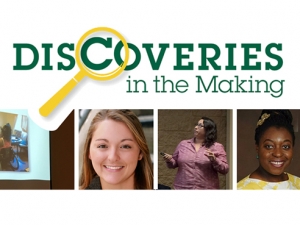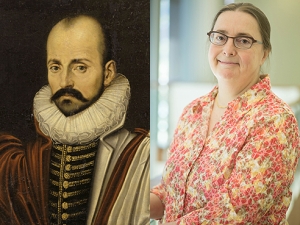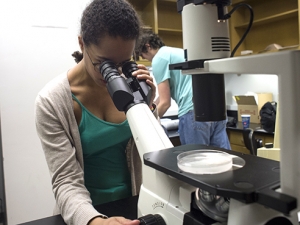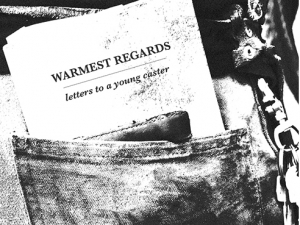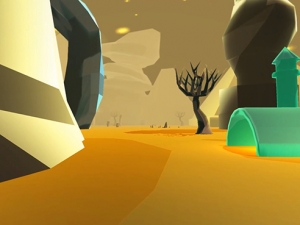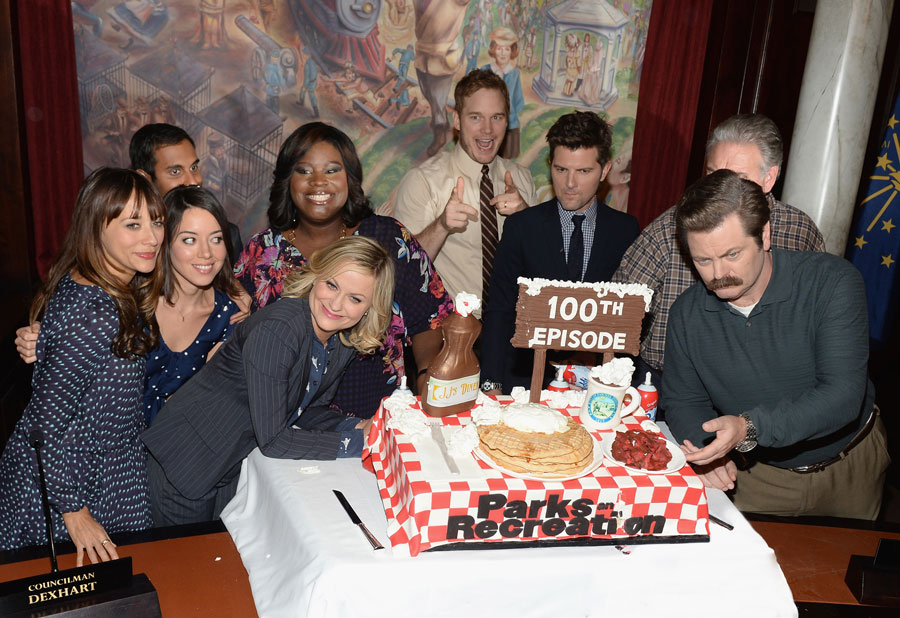 What can these people teach public administrators about ethics? Quite a bit, according to Erin Borry, who uses "Parks and Recreation" episodes as case studies in her classes.
What can these people teach public administrators about ethics? Quite a bit, according to Erin Borry, who uses "Parks and Recreation" episodes as case studies in her classes.
Imagine you are working in city government and your office receives a wine and cheese basket from a local construction firm. It’s clearly worth more than $25, which is the cutoff for acceptable gifts, but someone opens the basket anyway. What should you do?
That question has many possible answers. You could consider Title 36, Chapter 25 of the Alabama Code, the relevant law in the Yellowhammer State. You could look to Herbert Fain’s 2002 paper on the benefits of zero-gift policies or the opposite view taken in Denhardt and Gilman’s 2016 paper on the unintended consequences of such policies.
Then there’s this:
That clip, from the “Boys’ Club” episode of the sitcom “Parks and Recreation,” captures the shame of main character Leslie Knope (Amy Poehler) at having violated her ethical principles by breaking open the previously mentioned wine and cheese basket to share with co-workers. The original episode aired in 2009 and millions of viewers have laughed their way through it since. But it’s likely that few have dissected Knope’s dilemmas more thoroughly than students in the Master of Public Administration classes taught by Erin L. Borry, Ph.D. Borry, an assistant professor in the UAB College of Arts and Sciences Department of Political Science and Public Administration, has been using “Parks and Recreation” episodes to spark discussions for several years.
Learning to act in an ethical manner
“It’s the only show I’m aware of that focuses on local government, rather than politicians,” Borry said. “The characters are all public servants — it’s exactly the setting that our MPA students will be working in.” She didn’t start out as a major fan of the series. “I was too busy getting my dissertation done to watch,” she said. But several years ago, when she was teaching a class on open government at the University of Kansas, she showed her students clips from the first two episodes, which offer a look at the kind of feedback that can come from public meetings. The response showed her she was on to something; she has used “Parks” episodes as discussion starters ever since.
 Erin BorryAfter she came to UAB, Borry applied for a grant from the 2015-16 College of Arts and Sciences Dean’s Award program so she could do a thorough content analysis of the show’s 122 episodes. She found that 50 entire episodes (41%) were usable in the classroom, with 31 unique topics. That includes nine episodes focused on questions of ethics, four on public scrutiny and three each on human resources, intergovernmental relations, public service motivation and public meetings.
Erin BorryAfter she came to UAB, Borry applied for a grant from the 2015-16 College of Arts and Sciences Dean’s Award program so she could do a thorough content analysis of the show’s 122 episodes. She found that 50 entire episodes (41%) were usable in the classroom, with 31 unique topics. That includes nine episodes focused on questions of ethics, four on public scrutiny and three each on human resources, intergovernmental relations, public service motivation and public meetings.
In 2018, Borry published two papers that make the case for the television series in the classroom — Linking theory to television: Public administration in ‘Parks and Recreation’ and Teaching Public Ethics with TV: ‘Parks and Recreation’ as a Source of Case Studies. This year, based on that research, she has begun using episodes as case studies. At a time when the behavior of public officials is under close scrutiny, helping government officials learn to act ethically is more important than ever, Borry argues.
Valuable lessons
Public administrators are most often portrayed negatively in TV or in films, Borry explained, but in “Parks” they are presented as real people, with good and bad aspects. Moreover, a large number of plotlines actually revolve around common issues in government workplaces, rather than aspects of the characters’ personal lives. For those reasons, “Parks” episodes are a strong source of case studies, Borry said. And case studies, she argues in her “Teaching Public Ethics” paper, “are helpful for fostering skills that public managers can use in ethical situations.” In her “Linking theory to television” paper, she explained that case studies engage the reader (or viewer) through storytelling, solidify the link between theory and practice and enable “students and practitioners to ‘practice’ real-world scenarios before experiencing them on the job.”
| “Parks” episodes “tend to generate more lively than typical discussion, and students often will recall examples connected to an episode better than those connected with the readings or written case studies.” |
In UAB’s MPA program “we have a wide array of students,” Borry said. “Some of them are right out of undergrad, others have been in the workforce for a few years and then there are high-level managers who are returning 20 years later. Across the board they tend to enjoy it.”
It doesn’t hurt that “Parks and Recreation” is still tremendously popular. A recent industry article lists it as the third-most-streamed show on Netflix. “Students enjoy the series as a way to connect theory to practice,” Borry noted in “Teaching Public Ethics with TV.” When she shows “Parks” episodes, they “tend to generate more lively than typical discussion, and students often will recall examples connected to an episode better than those connected with the readings or written case studies,” Borry wrote.
Student Rachel Adams, who describes herself as a “dedicated fan” of the series, agrees. “I had seen the episodes before, but this time around I was able to watch with a different point of view based off the prompts Dr. Borry gave us,” Adams said. “The episodes she selected gave us multiple examples of how to apply the material we learned in class.”
What’s your motivation?
In her course, Scope of Public Administration, Borry explains to students that public service motivation is an important theory about what drives people to work in government. First, she has her students read the seminal paper on the topic, the 1990 article “The Motivational Bases of Public Service.” Then she illustrates some of the concepts with a “Parks” episode called “Greg Pikitis,” in which Leslie Knope vows to catch a teen she suspects of serially vandalizing one of her parks. Prior to watching the episode, Borry asks her students whether public service motivation automatically leads to good behavior all the time. “They will immediately say ‘yes,’” Borry said. But after watching the episode, in which Leslie’s determination to bring Pikitis to justice leads her to adopt questionable tactics, “they say, ‘that’s too much,’” Borry said. “It helps them clarify some concepts.”
Another episode, on the merger of the series’ fictional city Pawnee with neighboring Eagleton, illustrates performance selection. “They have to make decisions about who to let go and who to hire,” Borry said. “My goal is for my students to see how much this shows up in their everyday work.”
| Integrity — summarized in the statement "We act ethically and do what is right" — is one of UAB's core Shared Values. Learn more about the values online. |
Student Kimberlie Payne, who joined the MPA program for its “exceptional faculty,” is drawn to a career in local government “because it has the most direct impact with the members of a community,” she said. Payne hadn’t seen “Parks and Recreation” before taking Borry’s class, but she has found it to be “a remarkable learning tool for applying academic concepts to real-life scenarios,” she said. “Plus, the human brain is primed for learning — and long-term memory retention — when we encounter humor.”
Take a memo
In one exercise, Borry asks students to play the role of consultants, writing a memo recommending items to add into the parks department’s code of ethics to address events that happen in two episodes — “Gin It Up” and “Park Safety” — or they are free to select other episodes. Rachel Adams referenced the episode “The Fight,” in which a parks department employee sent an email endorsing an event at a local nightclub in which he had a financial stake. “One suggestion I gave was to mandate ethical guidelines for communication to the public via social media and the press,” Adams said. “I appreciate Dr. Borry’s creativity with our class structure and assignment types.”
In her memo, Payne recommended that Pawnee “foster the desire to adopt a spirit of professionalism” in its employees, starting with city leadership. “Professionalism in the department among co-workers is most achievable when your leadership establishes appropriate boundaries for behavior,” she wrote, and “the leadership should be required to personally behave within these boundaries.”
| Student Kimberlie Payne said "Parks" is “a remarkable learning tool for applying academic concepts to real-life scenarios. Plus, the human brain is primed for learning — and long-term memory retention — when we encounter humor.” |
Borry always shows the 20-minute episodes in class, and shows them in full, rather than presenting short clips. One reason is that the levity is a welcome break in classes that run from 5-7:30 p.m. and 7:30-10 p.m. — after a long workday for many of her students, Borry said. Another is that the plotlines are broken up between scenes, “so showing only one part means they miss out,” she said. “I’ve found that even in scenes that I’m not wanting them to pay attention to, they’ll bring to mind things I wasn’t thinking about. Someone might say, ‘That part where Leslie did this reminded me of when we talked about X, Y or Z three weeks ago.”
Is that legal?
One common question that Borry gets is about potential copyright issues involved in showing episodes in class. “The series is protected by copyright, but educators can use copyrighted materials in a limited way,” she wrote in “Linking theory to television.” “Copyrighted video must be used for educational purposes… and instructors cannot invite the public or charge any fees for those in attendance.” She also noted that the United States Copyright Act “allows educators to show a ‘performance or display of work… in the course of face-to-face teaching activities of a nonprofit education institution, in a classroom or similar place devoted to instruction.’ Thus, as long as the copy of the performance (i.e. DVD) was legally obtained, educators can show that performance in the classroom; however, this may not extend to distance learning.” (This is her understanding from what she has gathered, Borry said, but “I am not an authority on this,” she noted.)
Borry’s bright idea is spreading to colleagues. She knows of several who have used episodes in their public administration or political science classes, “and just the other day someone told me on Twitter that she was using them in her HR class,” Borry said. She is now working on a book chapter on the portrayal of public administrators in television and on film. “I’ve become known as the ‘Parks’ person,” she said. “Someone was going to have to do this at some point. I was lucky enough to do it first.”
